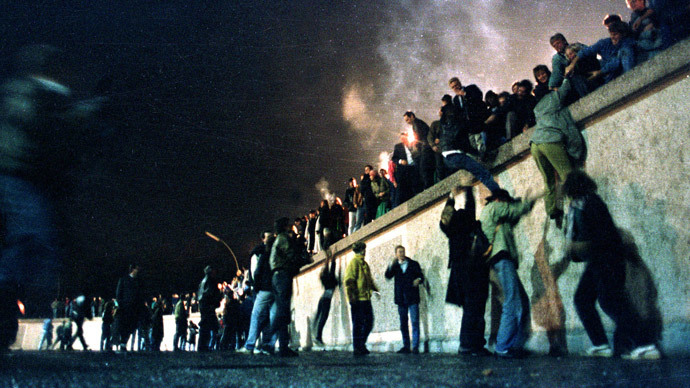'Germans favoring revolution are left-wing romantics'

A fifth of Germans are in favor of revolution and they are either left-wing romantics or right-wingers who recall the peaceful revolution of 1989, says Dr. Werner Patzelt, Head of the Institute of Political Science from Dresden University of Technology.
A study by the Free University of Berlin shows that twenty percent of Germans believe only revolution can reform society.
RT:With so many people in favor of a possible revolution, does that send a worrying signal to the government?
Dr. Werner Patzelt: Well, it is a long-lasting left-wing romanticism calling for a revolution because “revolution is a nice thing leading us to liberty, freedom,” and etc. And on the other hand we have a tradition of the German revolution of 1989 which nowadays is used as an argument for a successful from of reforming a political system by the right-wing. So I’m not really surprised by the fact that some 20 percent of Germans really are in favor of a revolution either for being romanticists from the left-wing or being right-wing people who think back on the old days when the communist regime was brought down by the revolution of 1989.
RT:The study also says that a majority of people (more than 60 percent) don't believe there's real democracy in Germany. Could this mistrust grow into a desire to change the system?
Dr. WP: Actually the German political system is confronted with a lot of challenges it did not use to have during previous years or decades. It’s challenged by globalization because Germany makes its money with exporting its goods and therefore economic competitiveness is an absolute imperative for the German welfare state. On the other hand, we have this big wave of immigration to Germany from the Middle East, from North Africa and of course within the European Union. And in these points the political class has taken their passive attitude: “Well, we have globalization, therefore we have to adapt to it. We have immigration, therefore we have to adapt to it.” And here comes the reaction of the people. As for globalization many Germans says “we have to be bear the burden of globalization by limiting increases in our wages while the better-off economic classes make very much more money out of this process.”
RT:Anti-Islam movements like Pegida have been very active recently; in fact almost half of respondents believe that xenophobia exists in modern Germany. Is it a dangerous sign?
Dr. WP: This is a reaction to the huge wave of immigration to Germany. There is no xenophobia per se in Germany but there is a widespread feeling that Germany is accepting more immigrants than it can integrate. We have had some 200,000 asylum seekers during the last year added with 100,000 roughly refugees from civil wars. And so many are worried about these huge figures and therefore say “we have a problem with these immigrants and the political class does not react properly.” And this type of observation of having xenophobia in Germany can be made out of two different angles, a left-wing or a right-wing.
The statements, views and opinions expressed in this column are solely those of the author and do not necessarily represent those of RT.
The statements, views and opinions expressed in this column are solely those of the author and do not necessarily represent those of RT.












